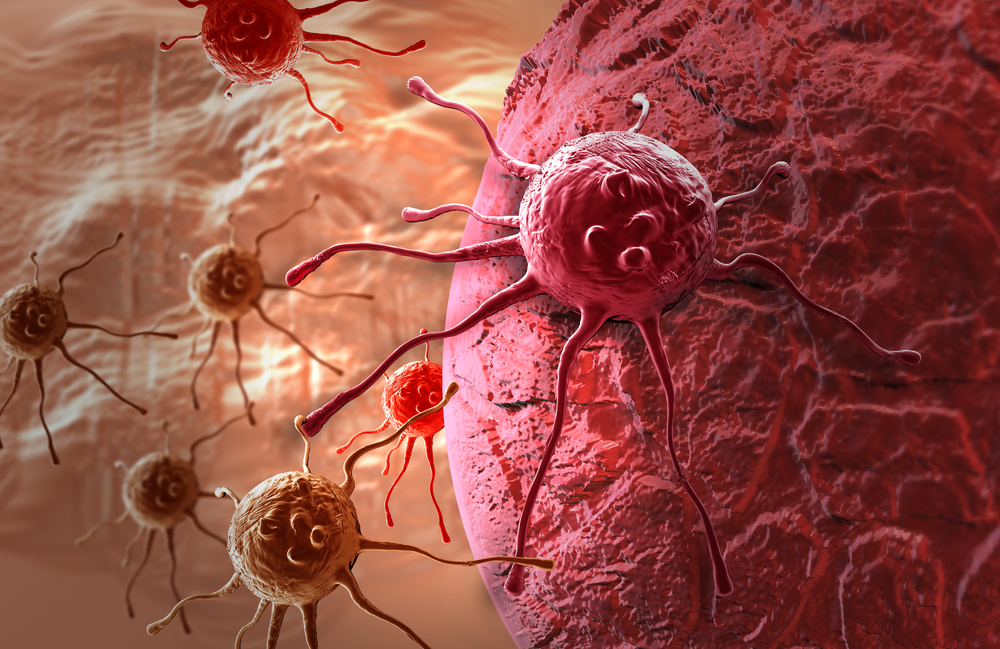
Scientists have uncovered molecules released by invasive skin cancer that reprogram healthy immune cells to help the cancer to spread.
Targeting these molecules with inhibiting drugs could help to prevent this aggressive skin cancer coming back after treatment.
The findings of the Cancer Research UK-funded study are published in Cell, today.
Researchers from Queen Mary University of London looked at cells from the edges of invasive melanomas in mice and human tumour samples, to investigate the effects of a protein they produce—called Myosin II.
They found that high levels of Myosin II in these cells not only makes them more mobile, but also triggers the release of chemicals that reprogram the immune system.
These chemicals affect the surrounding healthy immune cells, called macrophages, and hijack their natural cancer-killing abilities. This means that instead of attacking the cancer cells, they end up helping them to survive.
Some of these chemicals also make tiny holes in the blood vessels, allowing cancer cells to escape into the bloodstream and to new areas of the body.
Professor Vicky Sanz-Moreno, Cancer Research UK-funded lead author from Barts Cancer Institute, Queen Mary University of London, said: “This study highlights how cancer cells interact with and influence their surrounding environment to grow and spread. Developing treatments that target the chemicals that alter the immune system could help to prevent the spread of the disease.”
Researchers also found that one of the chemicals released by Myosin II-rich cells, called interleukin 1A, was key for making cancer cells more invasive. By blocking Myosin II activity with different drugs, they reduced the amount of interleukin 1A produced by melanoma cells in mice and human tumour samples.
Professor Sanz-Moreno explains: “By using therapeutic drugs that block either Myosin II activity or the release of interleukin 1A, we can make the tumour less invasive and slow its growth, making it easier to treat.”
Drugs that block Myosin II activity are already being used to treat diseases such as glaucoma, a progressive disease of the eye. Researchers are planning further lab studies to investigate whether drugs that block Myosin II could be combined with existing melanoma treatments.
Sanz-Moreno adds “We are excited to find out whether inhibitor drugs could be used in combination with other targeted therapies. By identifying effective treatment combinations, we hope that in the future Myosin II and interleukin 1A inhibitors could be used to improve patient outcomes and reduce the risk of melanoma coming back.”
Professor Richard Marais, director of the Cancer Research UK Manchester Institute and melanoma expert, said: “These exciting findings show how the basic research that Cancer Research UK funds is helping us to understand cancer biology and develop effective treatments for cancer patients.”
“When melanoma is removed, there’s always a chance that some cells could remain. What this study shows is that we may be able to develop treatments to stop those remaining cells from spreading after surgery, helping patients to survive for longer.”
Filed Under: Oncology




